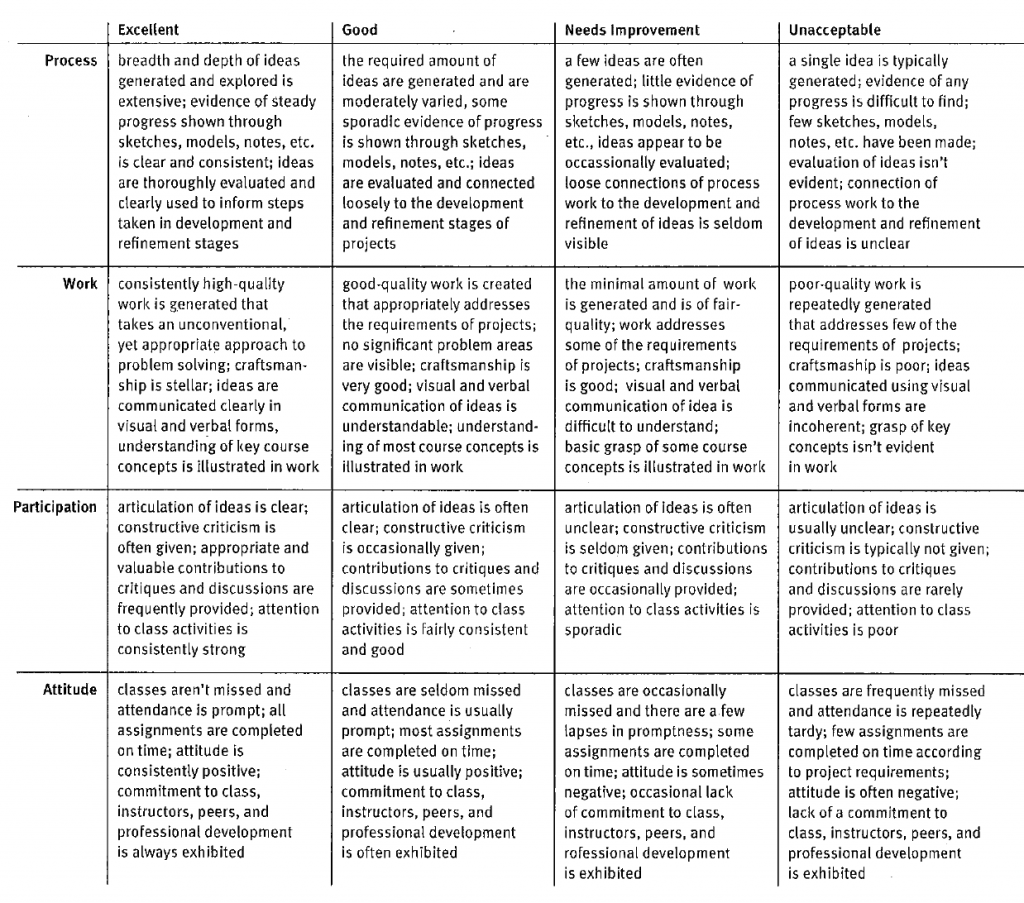I will use a rubric in assessing the creative assignments. The aim is for these rubrics to serve as a communication tool between us, articulating expectations and requirements of each project, and the evaluation criteria I use in grading. I will grade each category of the rubric and give feedback for each assignment through Slack. If you have any questions, check in with me about your grades or other concerns during office hours or by making an appointment.
General rubric considerations:
- Experimentation and Inventiveness: Are you discovering/exploring methods outside the obvious and predictable?
- Tenacity: Are you forging through difficult problems without giving up?
- Execution: Are you crafting with purpose, precision, and attention?
- Fulfillment: Did you meet all of the requested supporting criteria (such as providing scans of sketches, categorizing your blog post correctly, documenting your projects, writing reflections, etc.)?
The above are the four elements that you will be graded on.
Assignments always have a list of supporting requirements.
These are straightforward to fulfill, but if you fail to meet these, you will have points deducted. Nearly every Assignment will ask you to:
- Create a unique post for your assignment, on our class Slack.
- Make sure your blog post is titled and categorized as requested.
- Include quality, static documentation image(s) of your project, such as a photograph.
- Include scans or photos of any notebook sketches, if you have them.
- In the case of dynamic work, include dynamic documentation too: embed a YouTube, Vimeo demonstrating your project.
- Write 100-200 words about your project, describing its development process. In your writing, include some critical reflection and analysis of your project: In what ways did you succeed, and in what ways could it be better?
Projects will be graded with scores of A,B,C,D, or F:
- A: You made something good [i.e. creative excellence]
- B: You made something that works [i.e. correct and timely fulfillment of all requirements]
- C: You tried to make something [i.e. needs improvement]
- D: You didn’t even try [i.e. unacceptable]
- F: You didn’t even show up [i.e. zero credit]

On perfection: Not every project you make can or will be a work of brilliance. It’s OK. In this class, it is much more important to submit work on time than to freeze up, because your work isn’t perfect. Get it done and then get some sleep. This class is about developing fluency through practice. When you’re just learning how to speak a new language, no one expects you to make beautiful poetry. Your ability to explore and experiment is is a critical ingredient, which means sometimes your work will not look like what you expected. This is okay and part of learning.